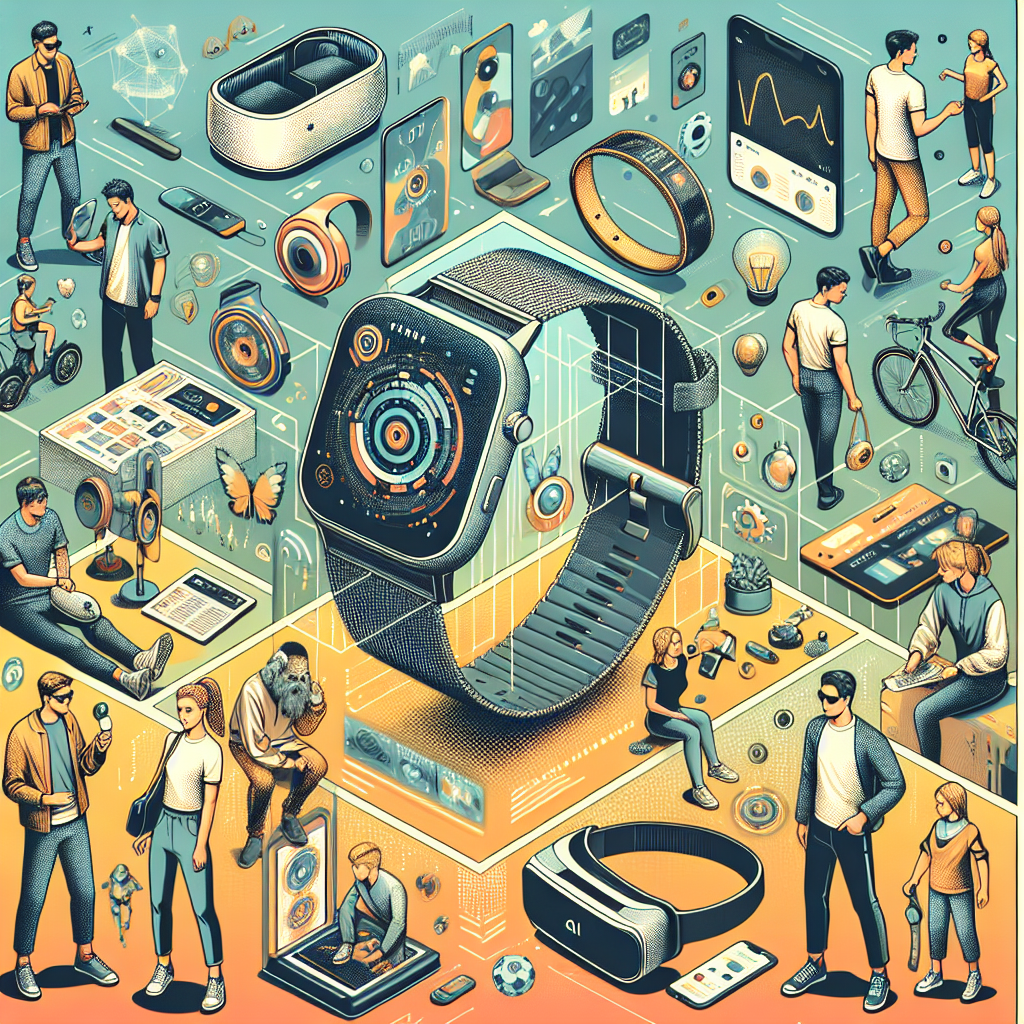In recent years, wearable technology has experienced a remarkable shift, evolving from mere fashion statements to essential functional companions. With the advancement of artificial intelligence (AI), its integration into wearable devices is transforming our interactions with technology, health management, and lifestyle enhancement. This article delves into the evolution of these devices, the impact of AI on this transformation, and what it means for consumers and industries.
The Evolution of Wearable Technology
Early Beginnings: Fitness Trackers and Smartwatches
The wearable technology journey commenced with simplistic fitness trackers that monitored steps, heart rates, and fundamental metrics. Devices like Fitbit established a foundation for a more health-oriented society. As time progressed, smartwatches emerged, offering notifications, calling features, and even GPS functionality. Initially seen as stylish accessories, their capabilities expanded, leading users to pursue devices that promoted health and connectivity.
A Interface Between Users and Data
Despite their promise, early wearables often fell short in providing sophisticated interfaces for data interpretation and analysis. They would present users with raw data but lacked the ability to deliver actionable insights. This gap began to narrow with the introduction of AI technologies.
The Rise of AI in Wearable Devices
Enhanced Data Analytics
One of the main advantages of AI in wearables is its capacity to process and interpret substantial amounts of data. Modern fitness trackers employ machine learning algorithms to provide personalized fitness recommendations based on user activity, sleep quality, and stress levels. Rather than simply tracking metrics, devices now deliver actionable insights that enhance health outcomes.
Health Monitoring and Predictive Analytics
The integration of AI has introduced predictive functionalities to wearables, allowing for real-time health monitoring. Advanced sensors can identify irregular heart rhythms and alert users to potential health risks. This trend is especially significant in medical-grade devices that monitor chronic conditions like diabetes or heart disease. These devices use AI to analyze patterns and foresee possible health crises, enabling users to take preventive actions.
Smart Personal Assistants
Wearables featuring AI-driven personal assistants are transforming user interaction with technology. Voice recognition capabilities enable users to issue commands, retrieve information, and control smart home devices effortlessly. This seamless AI integration not only boosts convenience but also turns wearables into intelligent companions that adjust to users’ habits and preferences.
Fashion Meets Function
Stylish Designs
As AI enhances the functionality of wearables, designers are prioritizing aesthetics to ensure these devices resonate with consumers. Brands collaborate with fashion designers to create wearables that embody personal style while maintaining practicality. The result is a new category of chic yet intelligent devices that encourage the adoption of technology in everyday attire.
Customization and Personalization
AI algorithms analyze individual preferences and behaviors, facilitating customized user experiences. From personalized fitness plans to tailored notifications, wearables are increasingly adapting to meet the specific needs of users. This level of customization not only boosts user engagement but also strengthens the connection between individuals and their devices.
Implications for Industries
Healthcare Advancements
AI-powered wearables are set to make a significant impact on healthcare. By ensuring continuous monitoring and enabling early diagnosis, these devices can lower hospital visits and reduce healthcare costs. Additionally, they empower users to take an active role in managing their health, shifting the focus from reactive to proactive care.
Retail and Marketing
The fashion sector is also feeling the influence of AI in wearables. Brands are leveraging data analytics to gain a deeper understanding of customer behavior, resulting in improved marketing strategies that effectively target consumers. Wearables that track shopping habits provide brands with invaluable insights, fostering innovation in product development and personalized marketing initiatives.
Conclusion
The emergence of AI in wearable devices signifies a crucial moment at the intersection of technology, fashion, and healthcare. As these devices transition from simple accessories to advanced functional tools, they hold immense potential to enhance our quality of life. The future of wearables is bright, filled with possibilities, offering innovative solutions that integrate seamlessly into our daily routines. As we embrace this technological wave, we can anticipate wearables becoming vital allies in our journey towards improved health, connectivity, and style.

